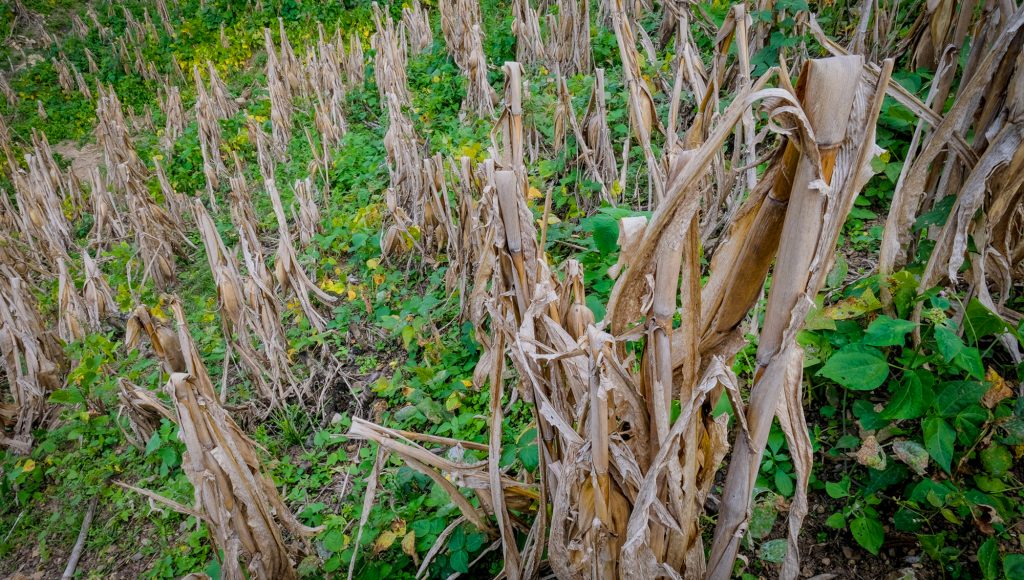I n early January 2014, Guatemala’s daily newspaper, La Prensa, reported that more than 95,000 families were without grain in the ‘Dry Corridor’. The rains did not come in this dry zone and because there was no rain the usual harvest of corn and beans was insufficient or nil. Cyclical droughts are a frequent occurrence in the dry zones of the country. When the rains fail, there’s always hardship among the people in the countryside but this time it is much worse. In other years, families could have earned extra cash to buy emergency food supplies by working on the coffee plantations – but not now. This year a severe blight has wiped out the coffee crop – so there will be little work for the next few years. The situation is critical – no food – no money – thousands of families affected! Immediate food aid for the short term is being provided by various emergency aid organizations including the Mennonite Central Committee, World Food Grain Bank and various other relief agencies and church aid groups.

Yet, representatives of these programs believe that giving out food does not resolve the situation. “Seasonal famine is not an emergency problem – it is a structural one…it is complex…it isn’t going to be resolved by just handing out food because the same thing is going to happen next year.” Byron Garoz of the Rural Studies Ixim Collective asserts, “Public policies are needed… Seasonal famine has various causes besides climate. Lack of land and employment are structural issues. This is a dry area and the soil is poor. However, in other countries they have demonstrated that this kind of earth can be productive. Programs must be put in place to provide irrigation, technical innovation and technical assistance.” Project Harvest works on these long term solutions. This Hamilton based organization empowers rural women, the primary food managers, to produce nutritious food for their families using holistic ecological practices.

The Project Harvest staff, in Guatemala, teach rain water harvesting and organic farming techniques to ensure our participants have healthy gardens to sustain them and to address the root causes of malnutrition. Project Harvest is dedicated to empowerment and participation, organic and ecological practices, nutrition education, and diversifying livelihoods. By contributing to Project Harvest you help to feed your neighbour and relieve hunger.

